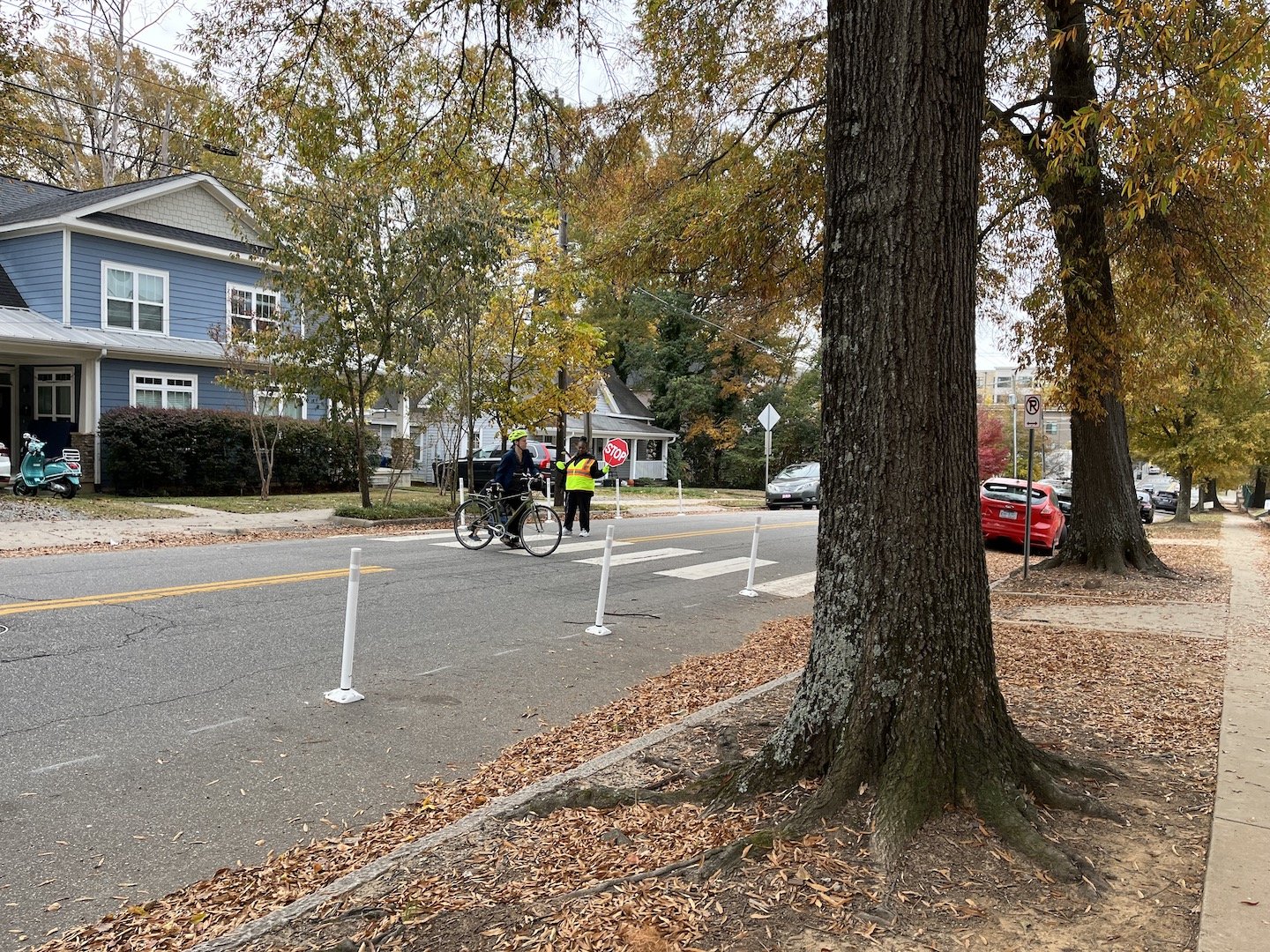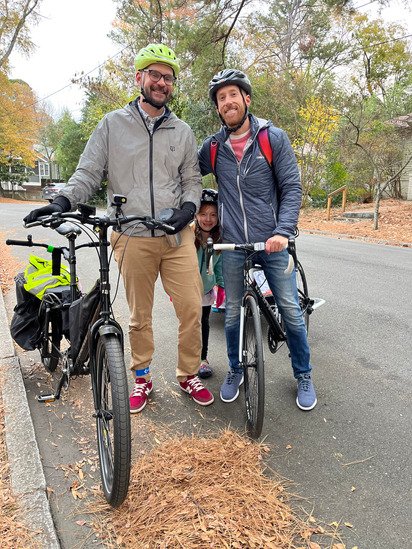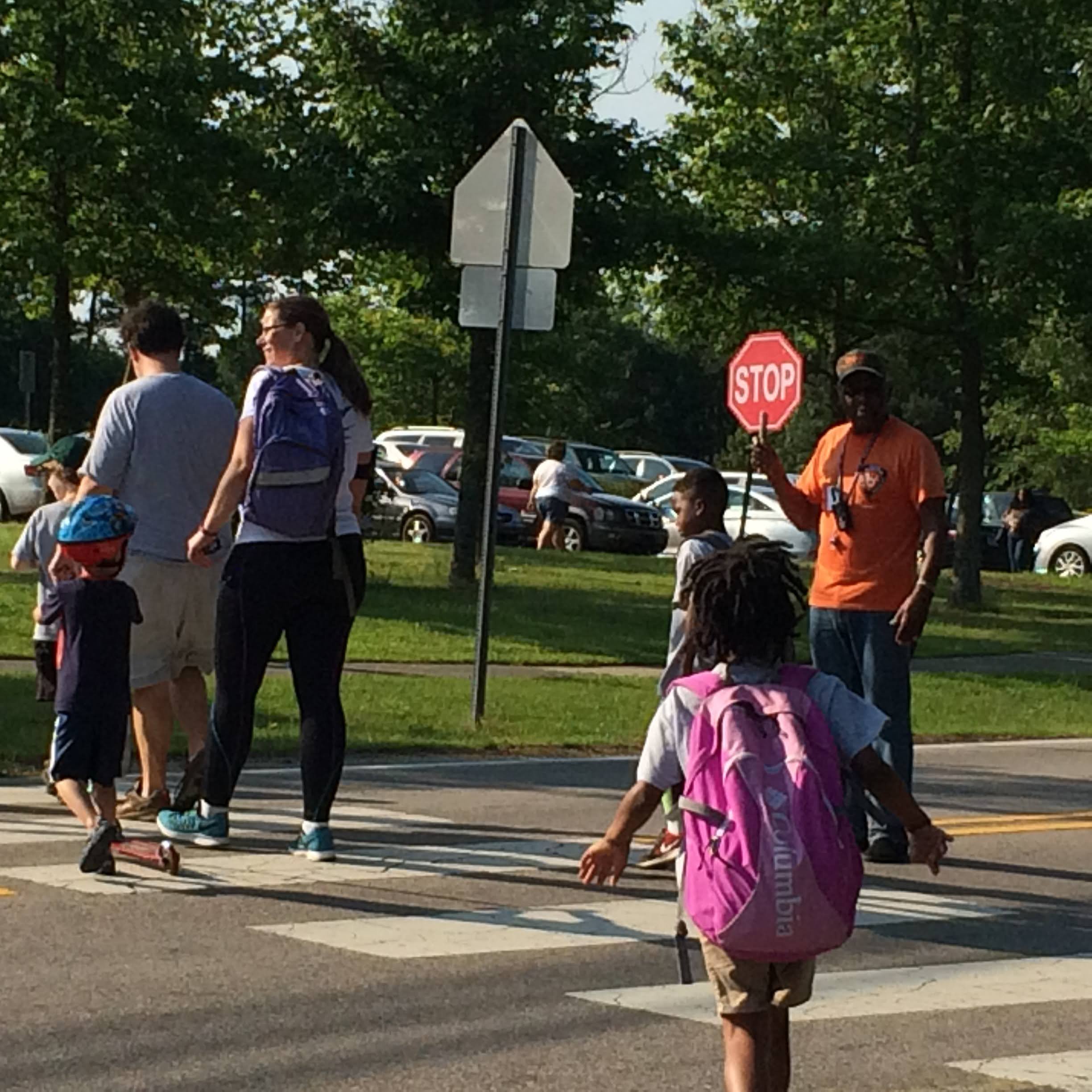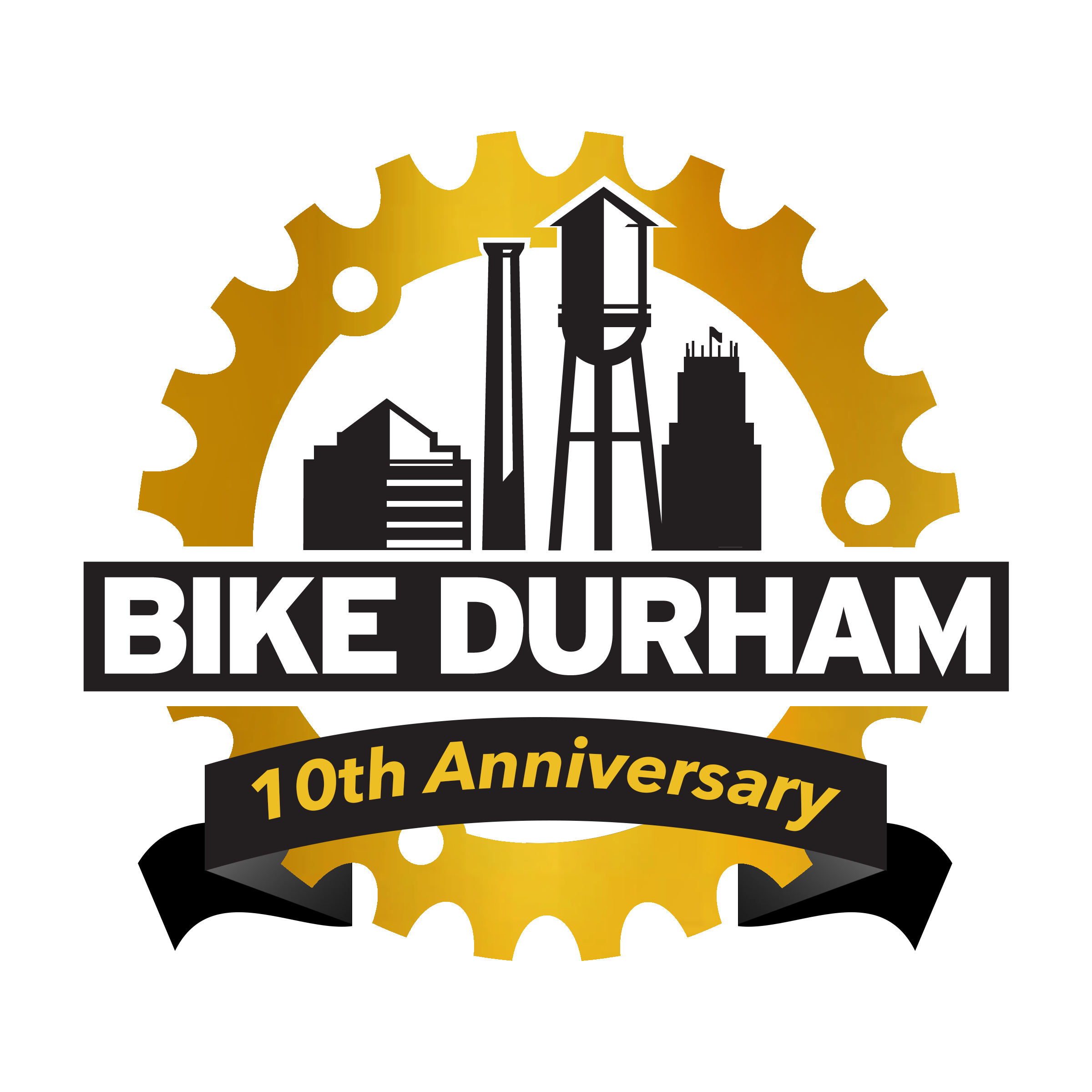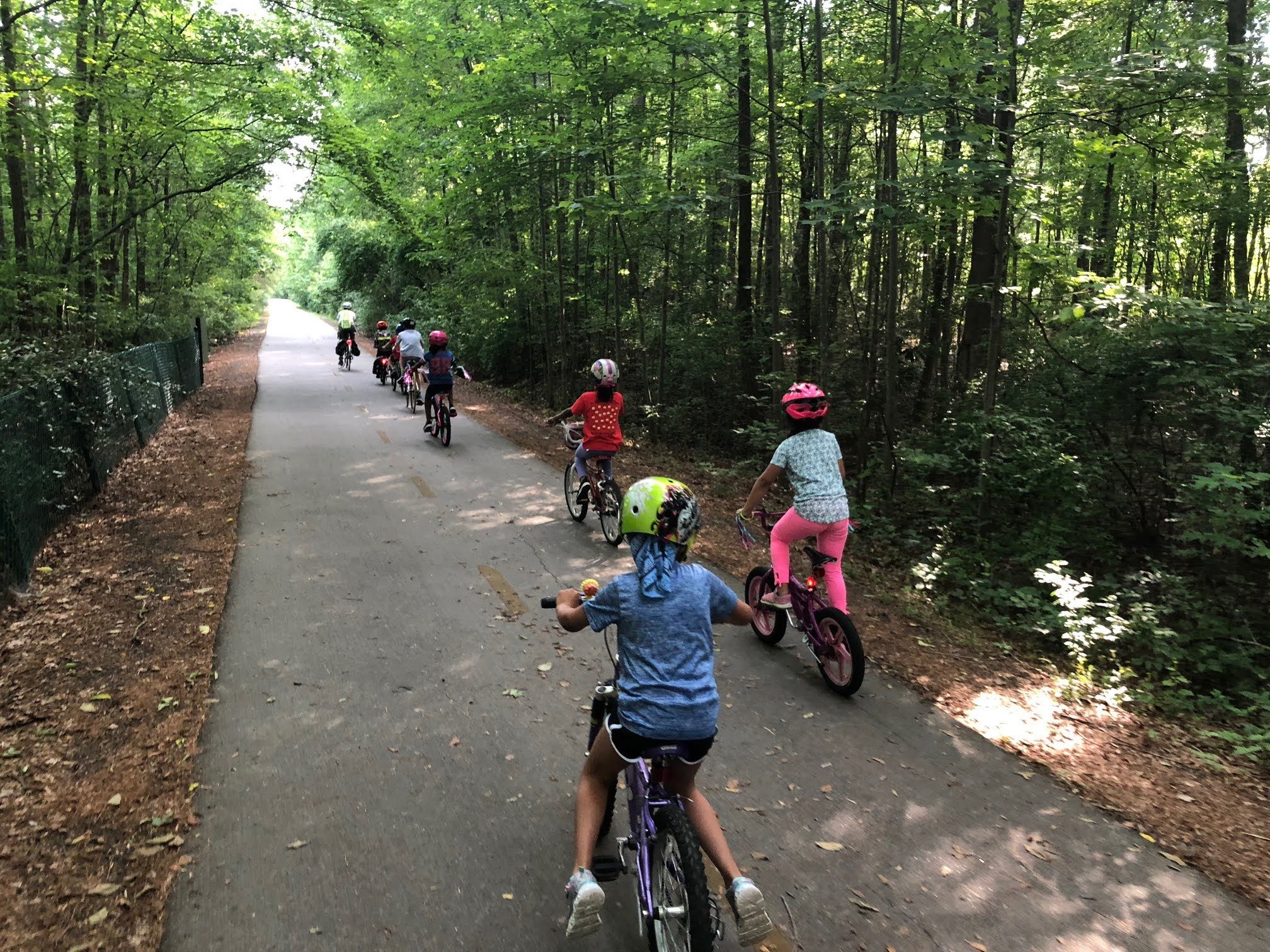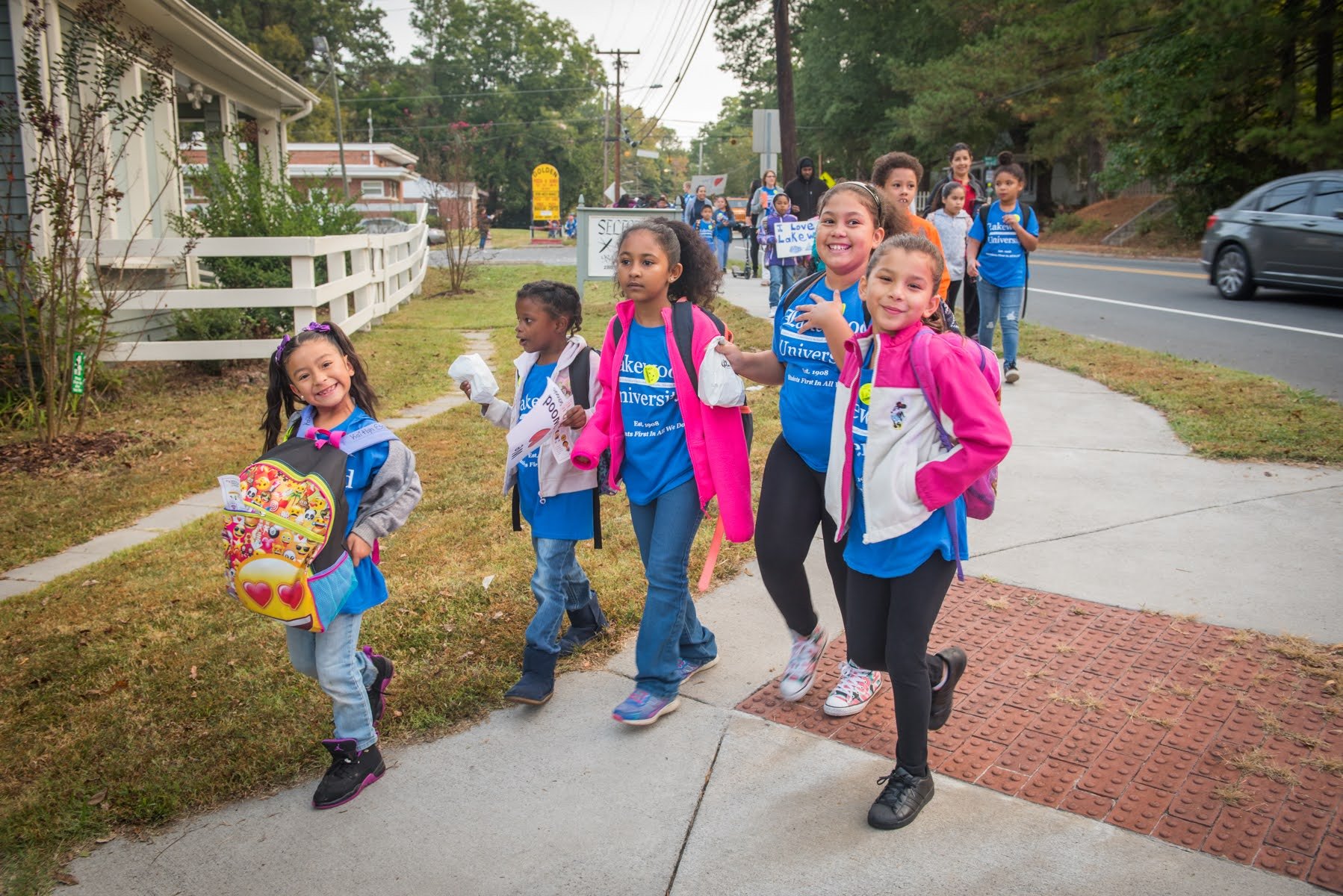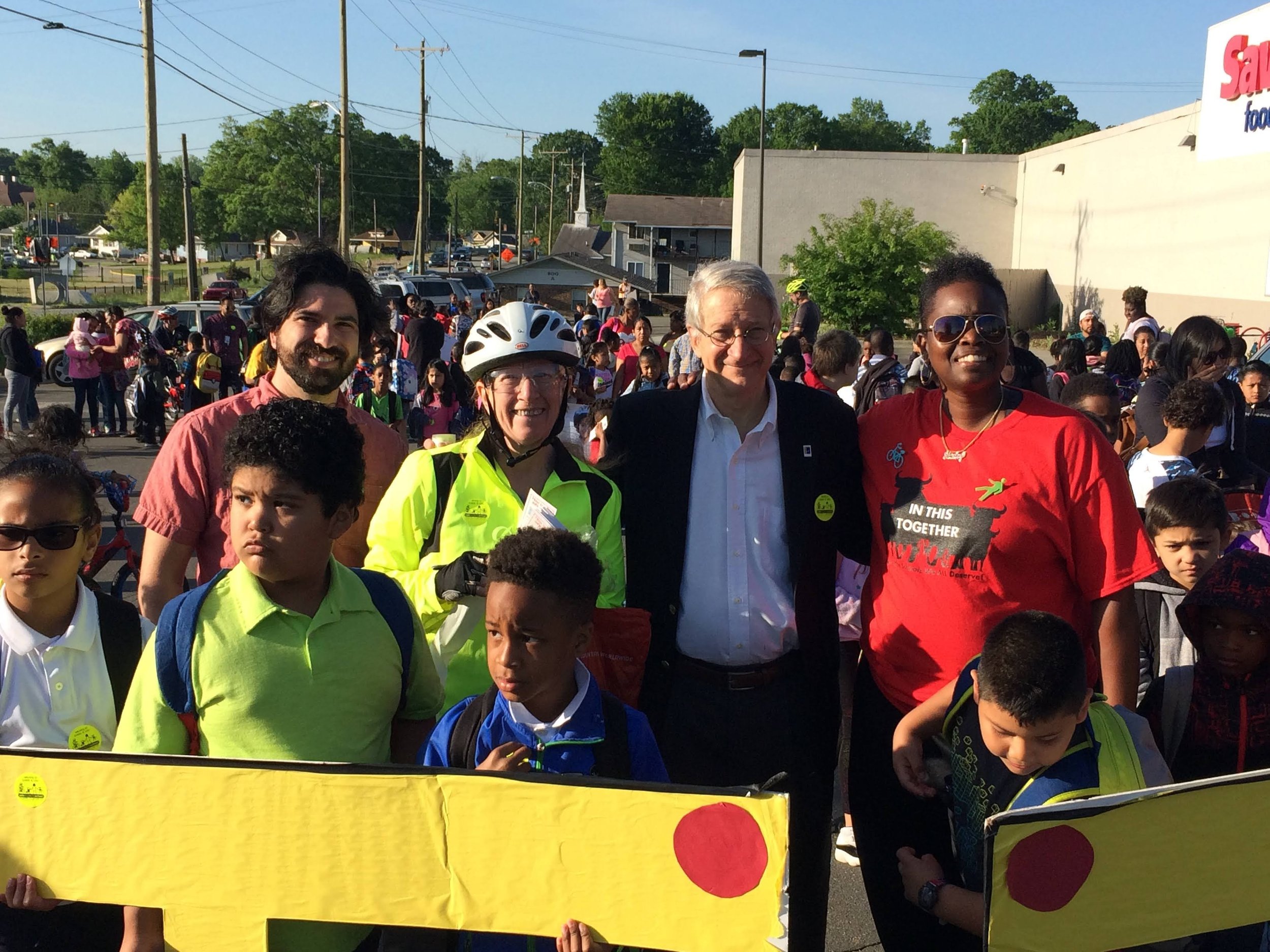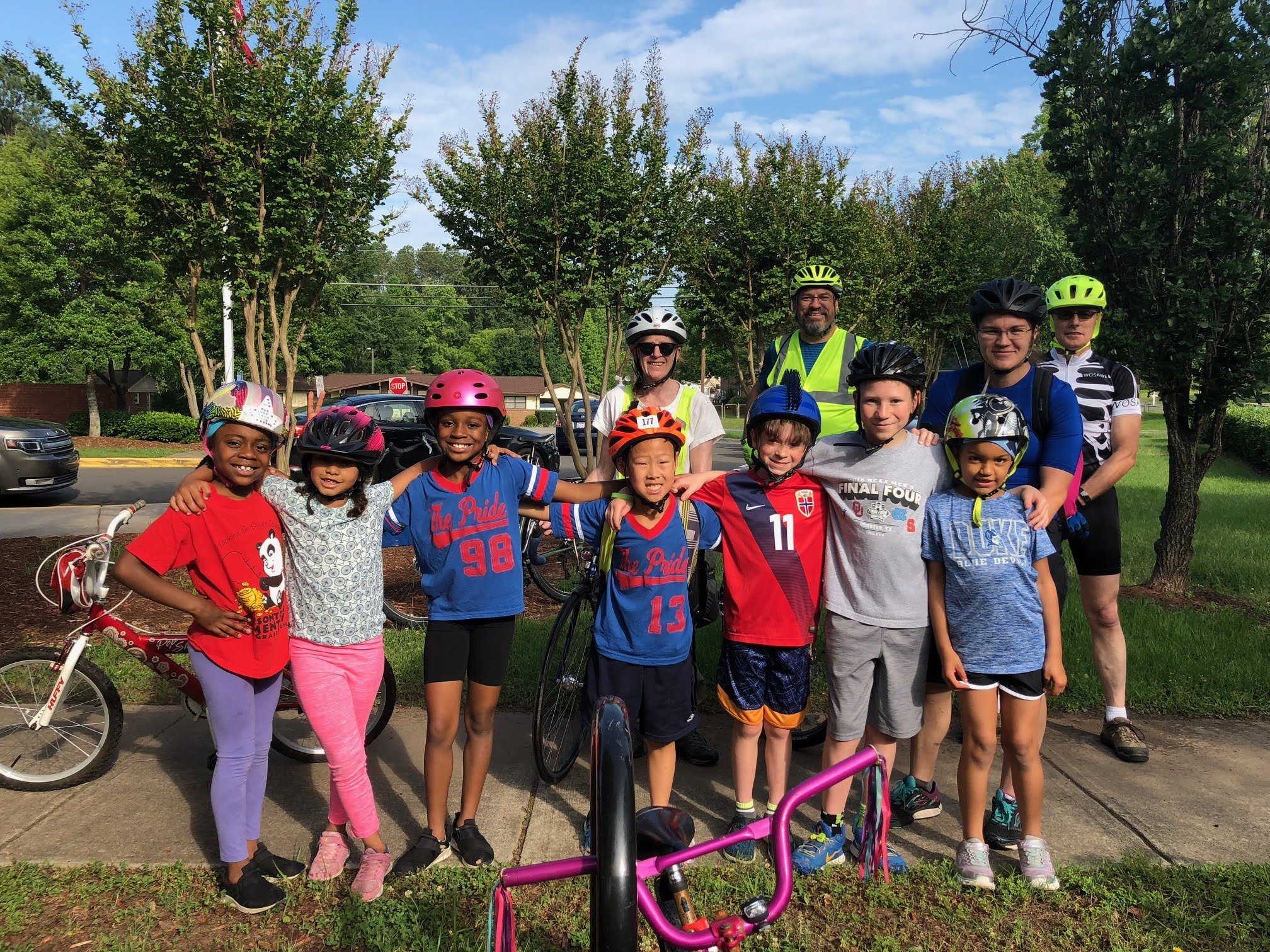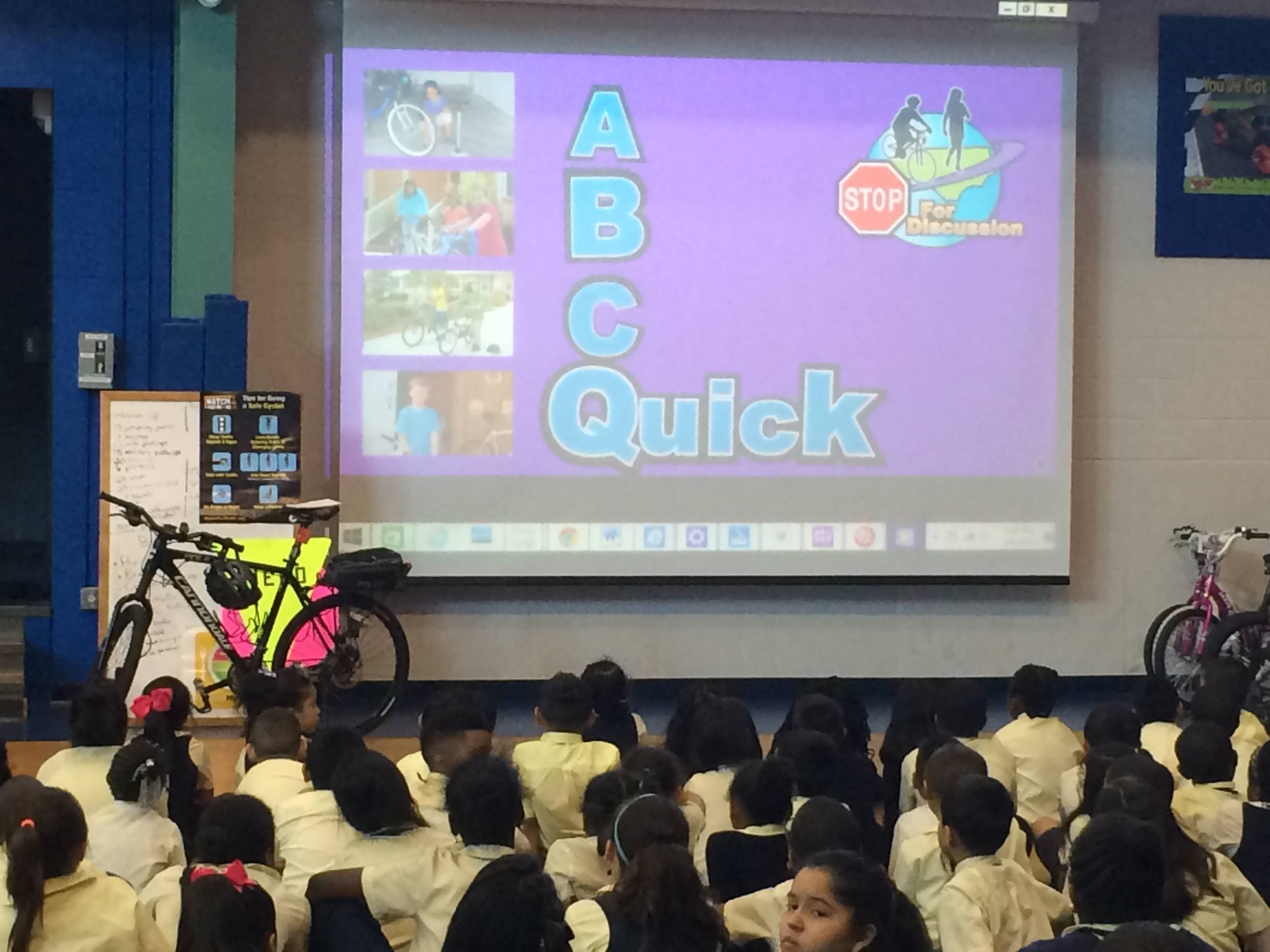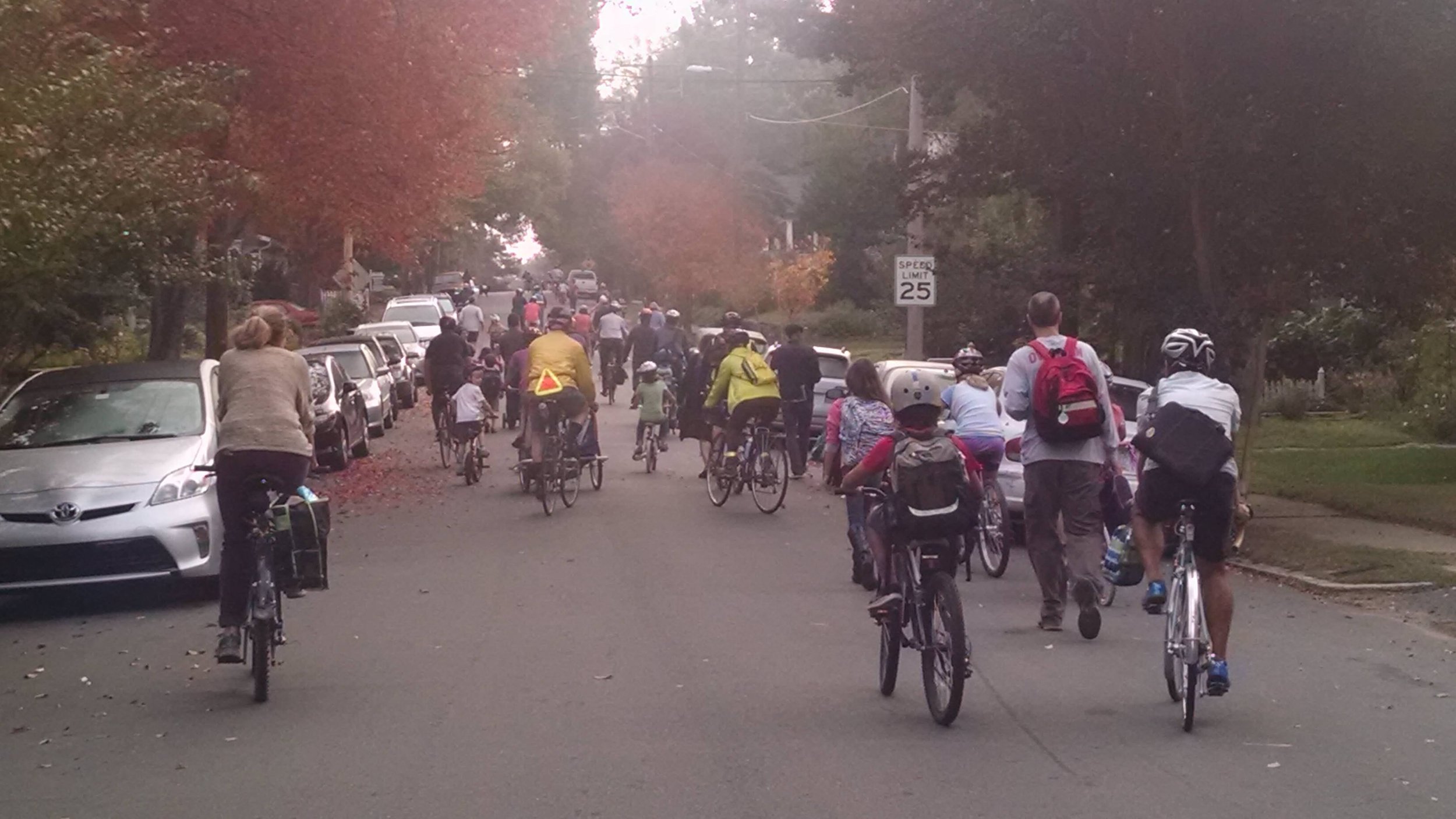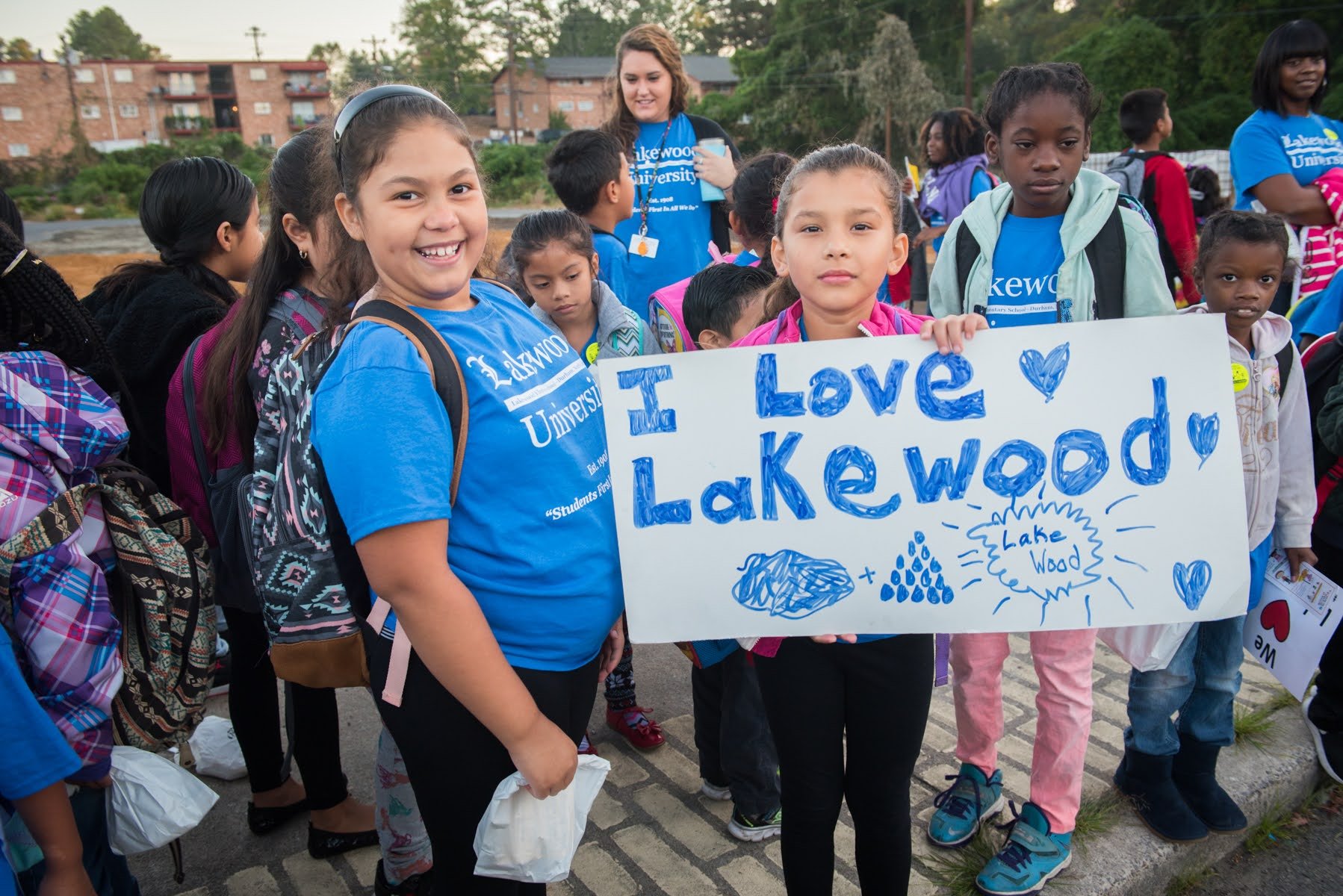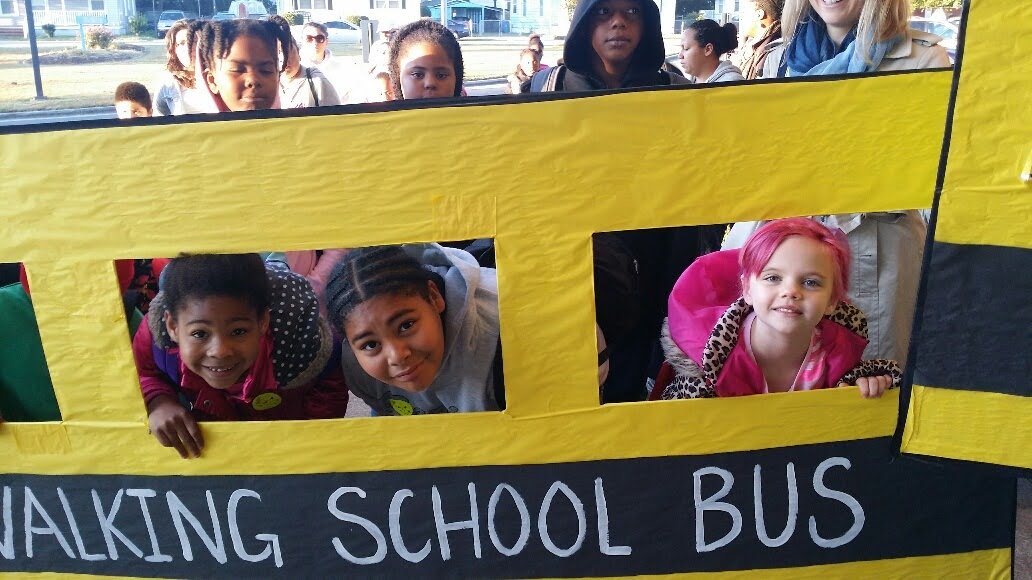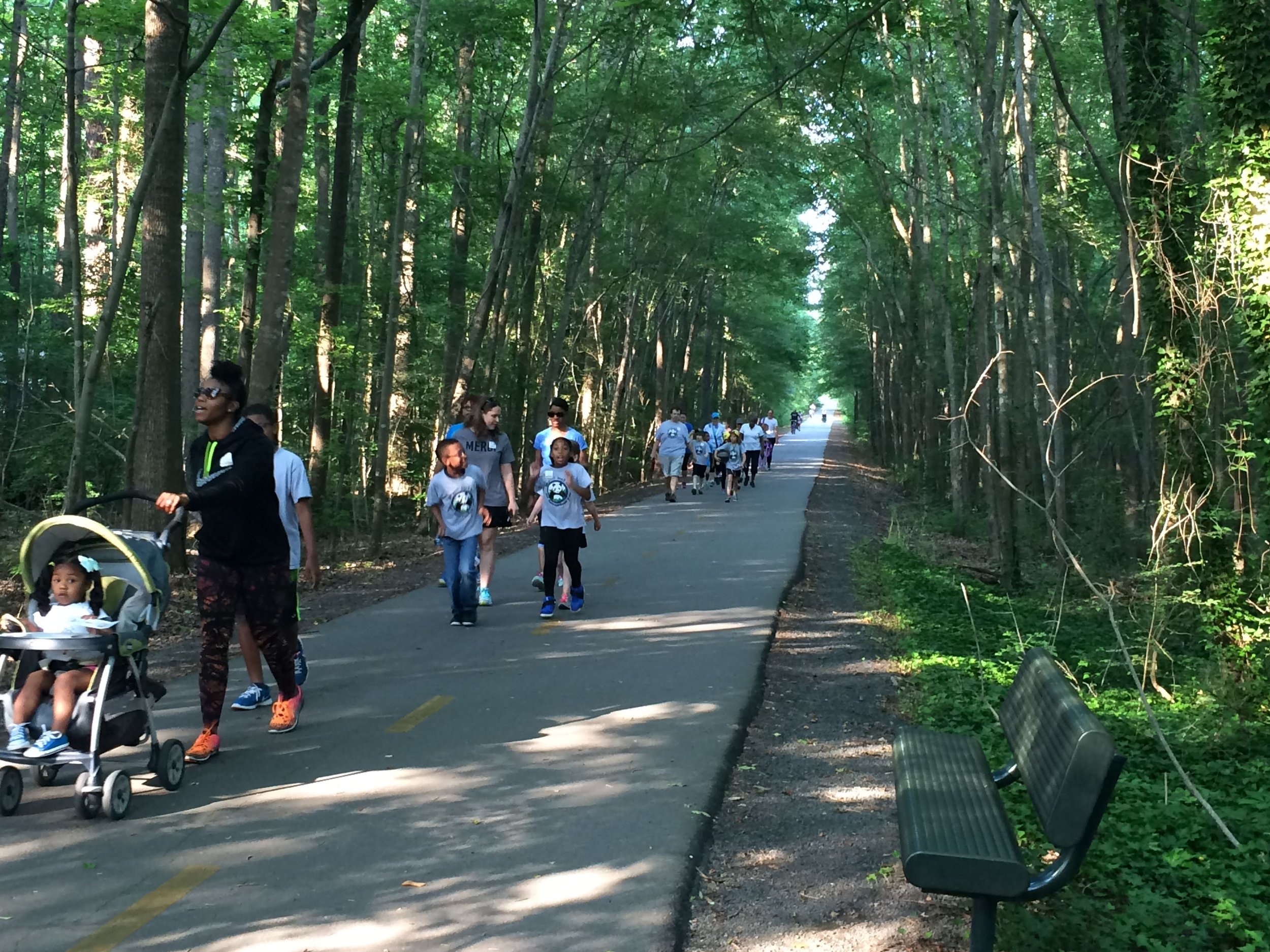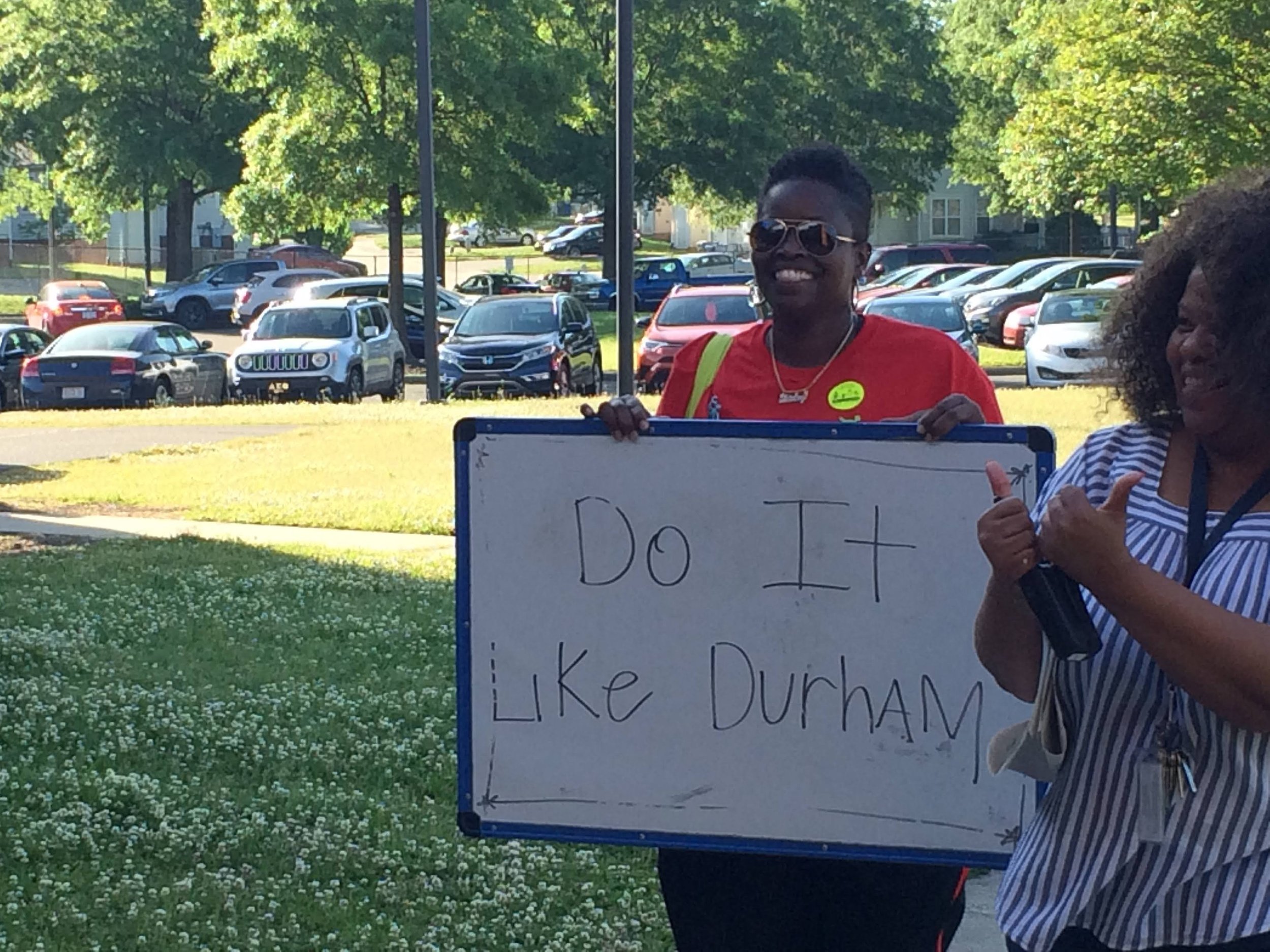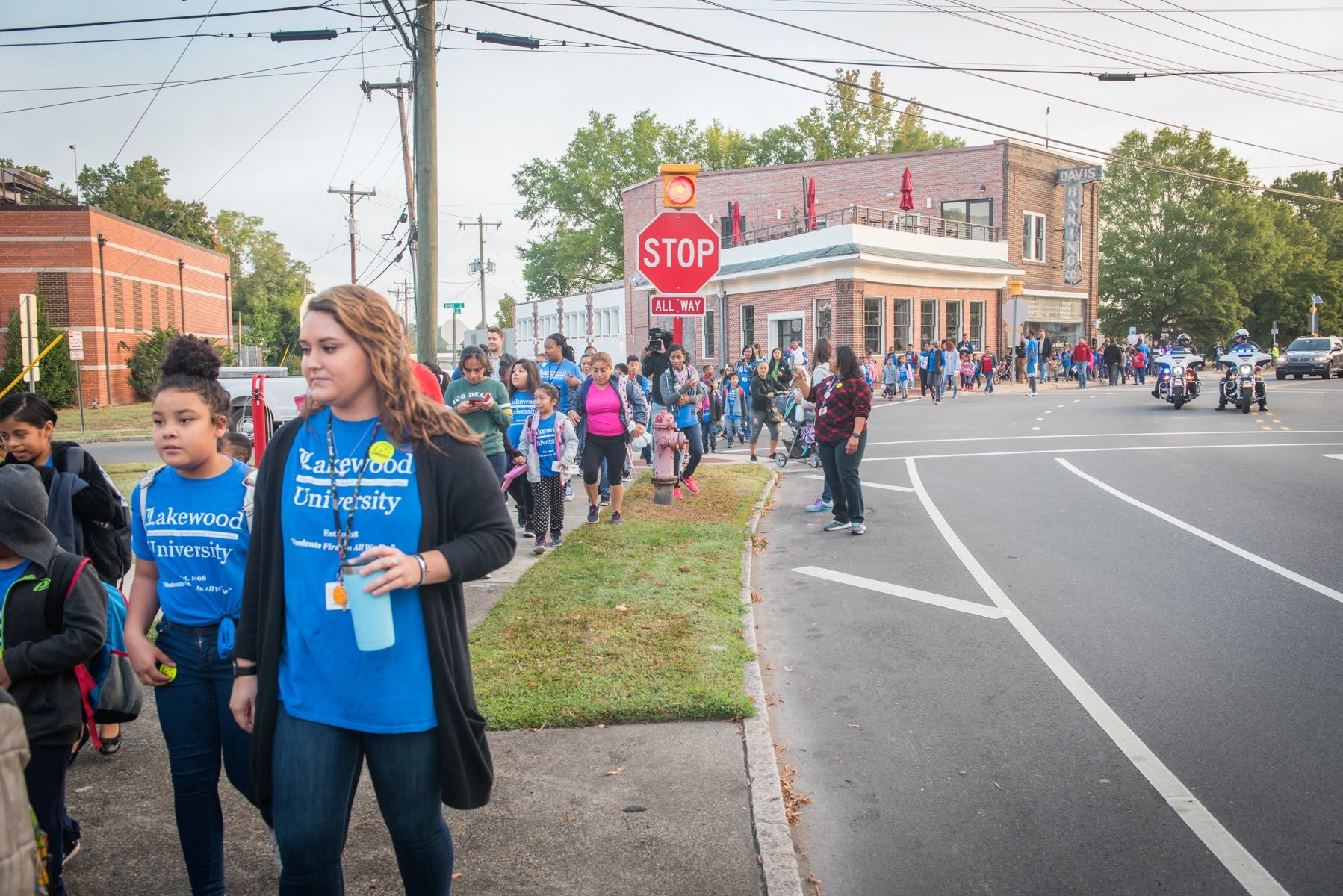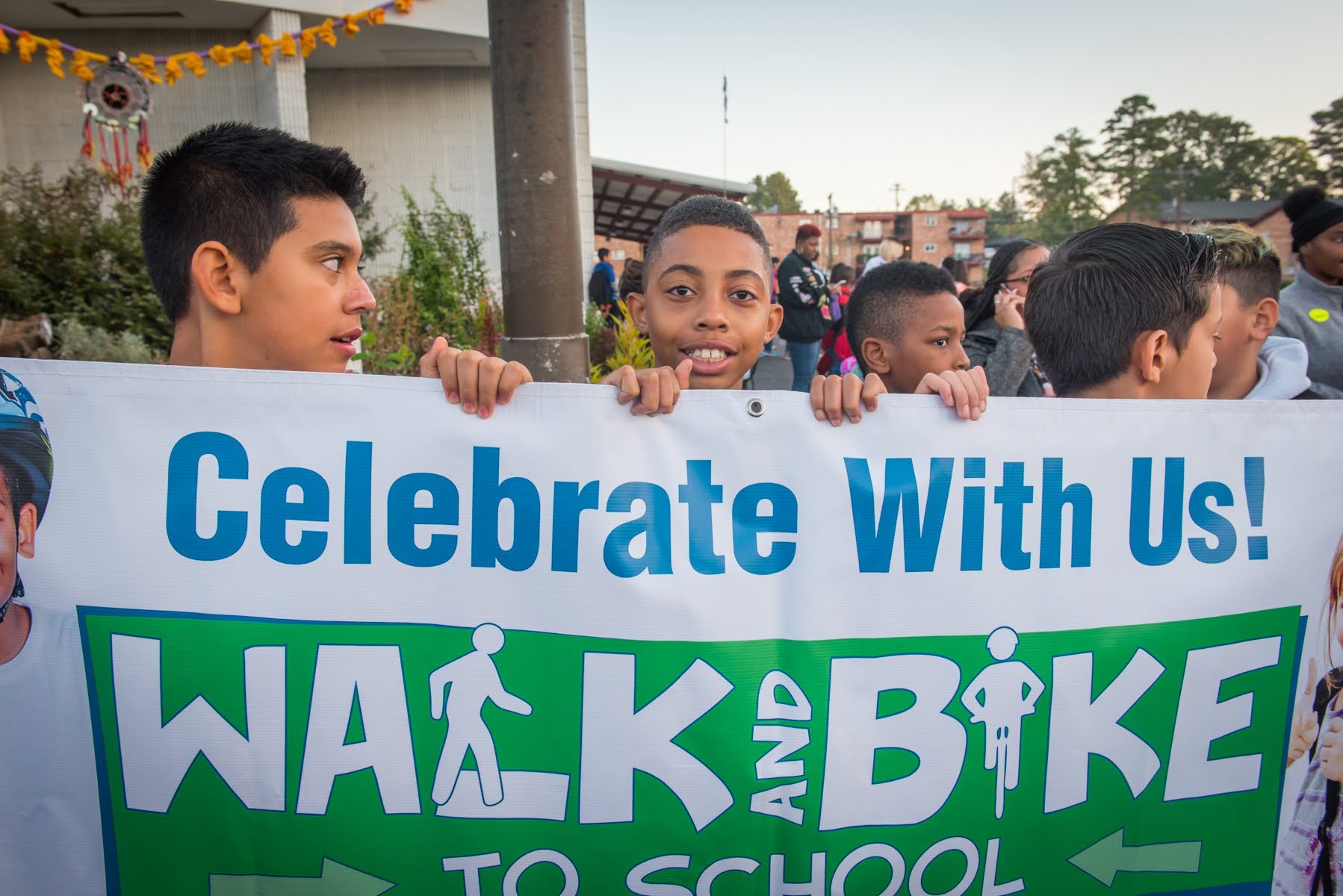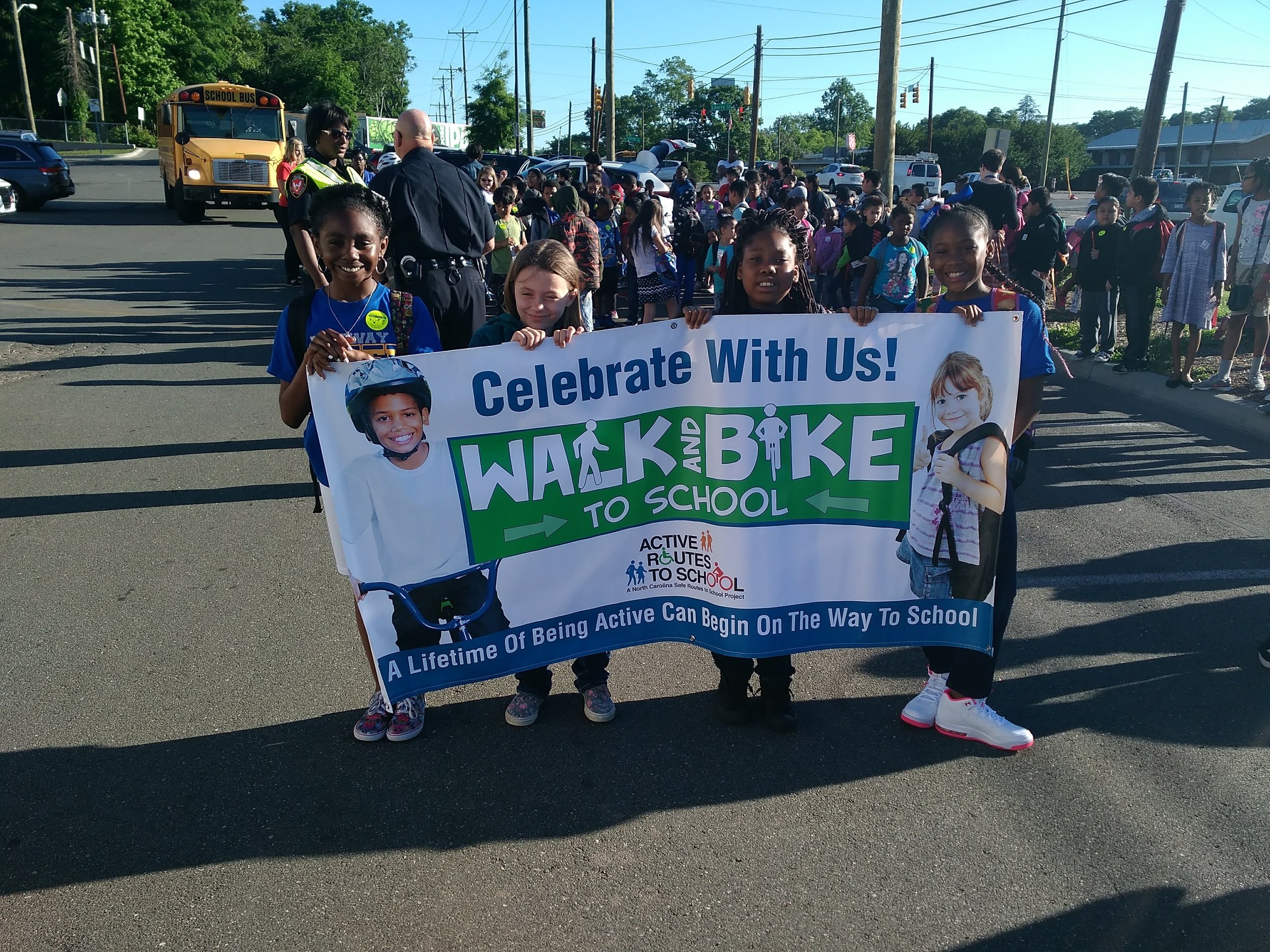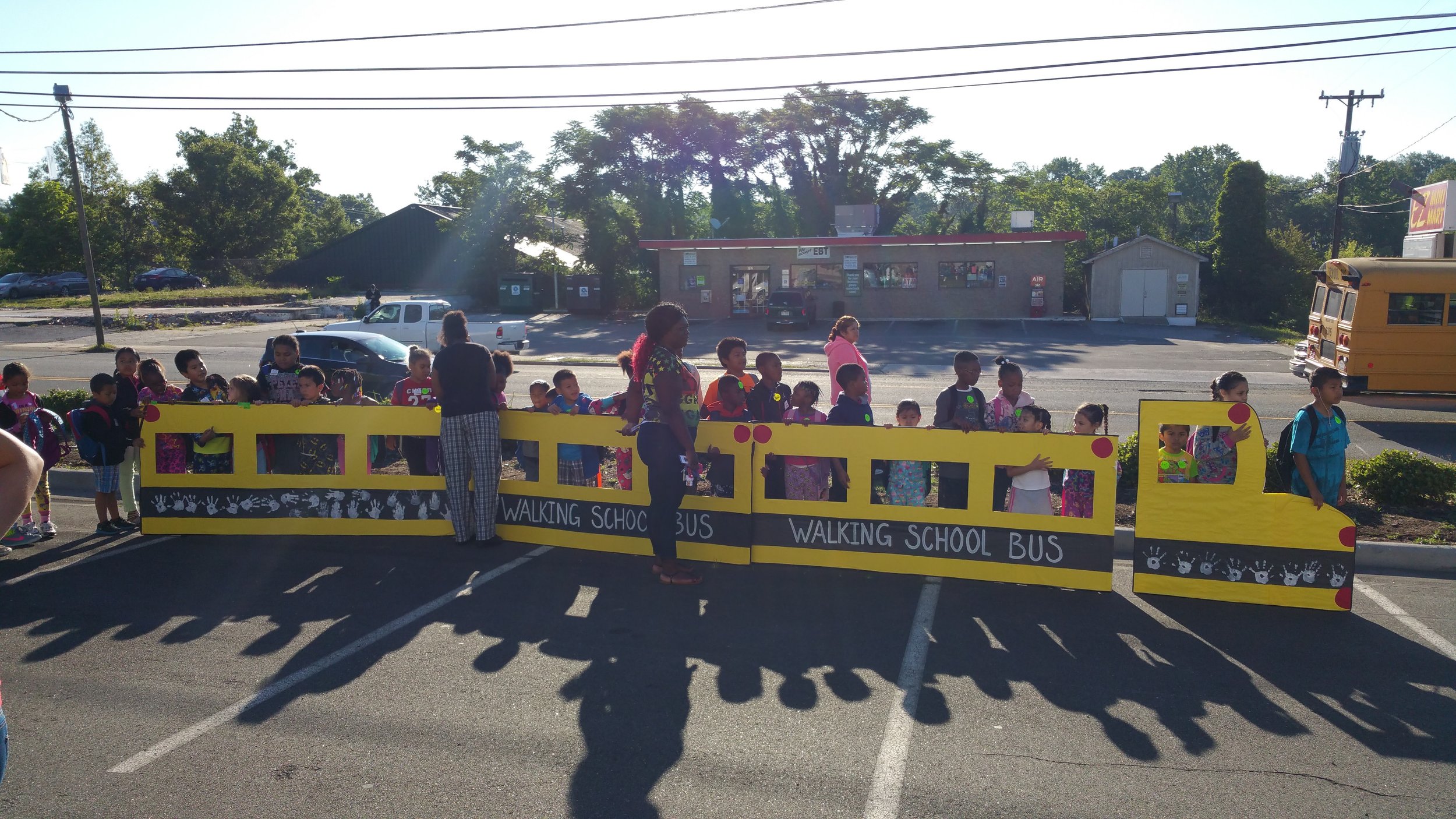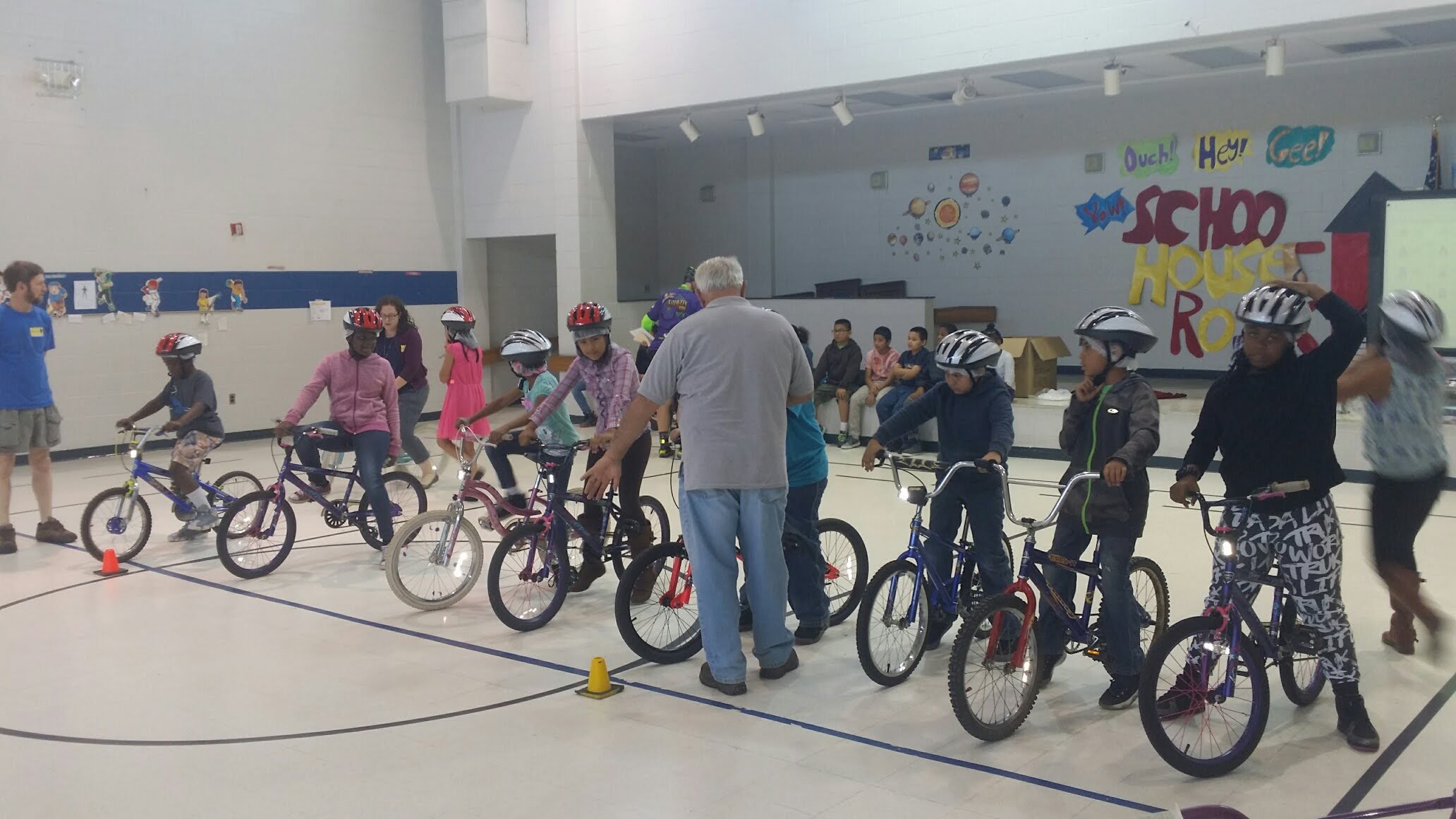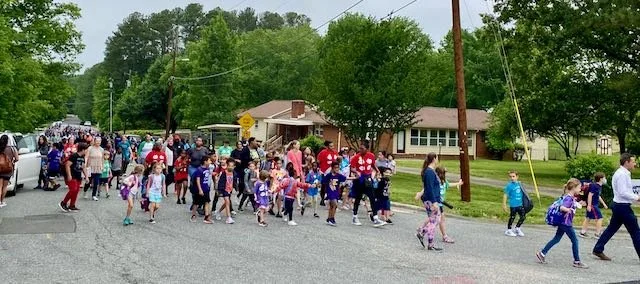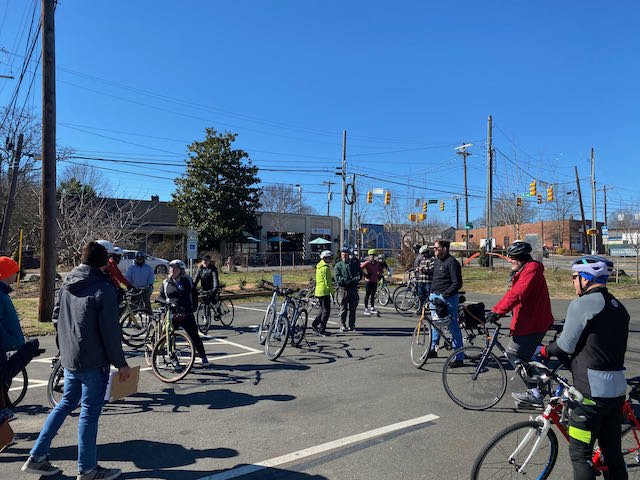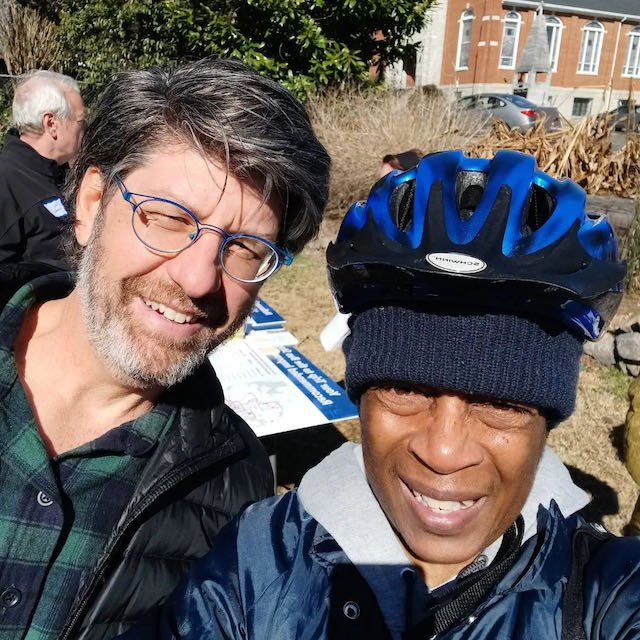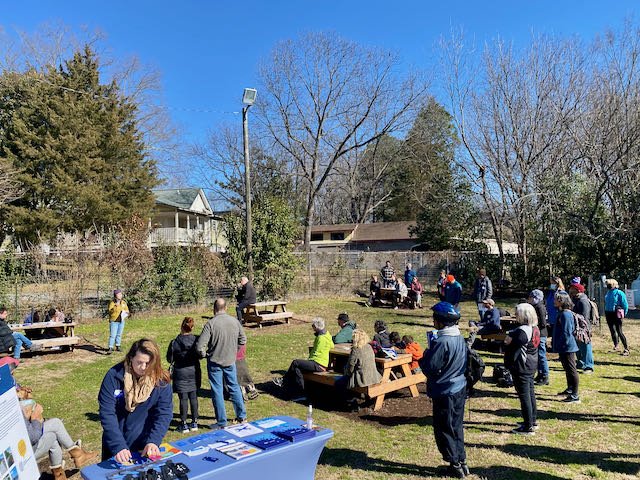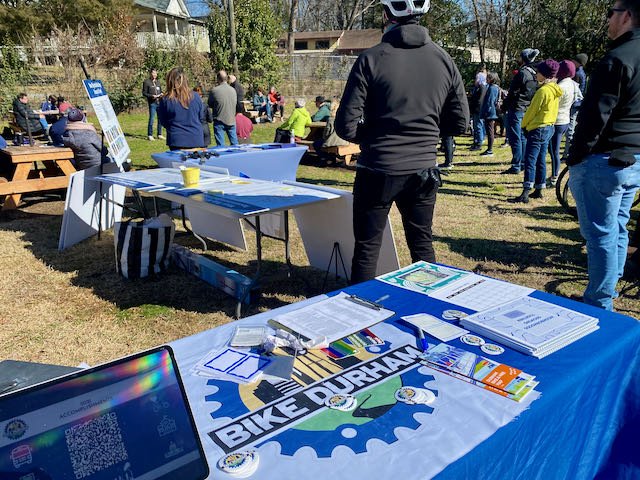My daughter’s parking space at high school
Tomorrow, my youngest daughter is starting her Senior year at Riverside High School. It will mark the eighteenth consecutive year that one of our daughters has attended Durham Public Schools. In addition to feeling excited for her, I’m also nervous because we’ll be letting her drive to school for the first time. We know that back-to-school time can be particularly hectic on the streets and roads as there is concentrated activity around schools, many navigating new travel patterns, and lots of people new to walking, biking, and driving, all on the streets together.
Over the past eighteen years, with our three daughters, we’ve done it all. There has been walking, biking, riding a kick-scooter, riding the school bus, and carpooling. There has also been driving (by my wife and me) and driving by our daughters. We have been fortunate that the only injury has been some scrapes from a fall on a kick-scooter. And I feel privileged that we live in a neighborhood where walking and biking to school has often been a good option.
Most families in Durham are driving their children to school or putting them on a school bus. Walking or biking to school has become a rarity, not just in Durham, but across the country. This is not because families don’t want their kids to walk or bike to school, most would love to give their kids that kind of independence and save themselves the time it takes. But it is usually the rational choice given distances or dangers between home and school. This is the outcome of decades of policy choices at the local and state levels about how we build our communities and our transportation system.
At Bike Durham, we want all families to have the choice to send their kids out the door each day to walk or bike or roll to school. And we want that to be a safe option that parents feel good about.
Here is what we are doing about it:
Advocating for the City to continue funding sidewalk, intersection, and crosswalk improvements near schools so that all students will have safe walking access to schools;
Advocating for measures to slow speeds City-wide, starting in school zones;
Training elementary school students on bike riding and walking safety skills; and
Supporting families that are starting bike trains/walking school buses.
These infrastructure improvements require investment at the local, state, and federal level. In addition to direct public investment, we need to change the rules that our governments administer to ensure the private developers are building communities where it is easy to walk and bike and that are well-connected to neighboring development and the rest of Durham.
Responsible Road User Behavior: For Drivers
While improved infrastructure and better development is crucial, it must be complemented by responsible behavior from all road users. Tomorrow, we will all be navigating the infrastructure we have, so here are reminders from the National Safety Council about how to be safe tomorrow, regardless of whether you have kids at schools or not.
If You're Dropping Off
Schools often have very specific drop-off procedures for the school year. Make sure you know them for the safety of all kids. The following apply to all school zones:
Don't double park; it blocks visibility for other children and vehicles
Don't load or unload children across the street from the school
Carpool to reduce the number of vehicles at the school
Sharing the Road with Young Pedestrians
According to research by the National Safety Council, most of the children who lose their lives in bus-related incidents are 4 to 7 years old, and they're walking. They are hit by the bus, or by a motorist illegally passing a stopped bus. A few precautions go a long way toward keeping children safe:
Don't block the crosswalk when stopped at a red light or waiting to make a turn, forcing pedestrians to go around you; this could put them in the path of moving traffic
In a school zone when flashers are blinking, stop and yield to pedestrians crossing the crosswalk or intersection
Always stop for a school patrol officer or crossing guard holding up a stop sign
Take extra care to look for children in school zones, near playgrounds and parks, and in all residential areas
Don't honk or rev your engine to scare a pedestrian, even if you have the right of way
Never pass a vehicle stopped for pedestrians
Always use extreme caution to avoid striking pedestrians wherever they may be, no matter who has the right of way
Sharing the Road with School Buses
If you're driving behind a bus, allow a greater following distance than if you were driving behind a car. It will give you more time to stop once the yellow lights start flashing. It is illegal in all 50 states to pass a school bus that is stopped to load or unload children.
Never pass a bus from behind – or from either direction if you're on an undivided road – if it is stopped to load or unload children
If the yellow or red lights are flashing and the stop arm is extended, traffic must stop
The area 10 feet around a school bus is the most dangerous for children; stop far enough back to allow them space to safely enter and exit the bus
Be alert; children often are unpredictable, and they tend to ignore hazards and take risks
Sharing the Road with Bicyclists
On most roads, bicyclists have the same rights and responsibilities as vehicles, but bikes can be hard to see. Children riding bikes create special problems for drivers because usually they are not able to properly determine traffic conditions. The most common cause of collision is a driver turning left in front of a bicyclist.
When passing a bicyclist, proceed in the same direction slowly, and leave 3 feet between your car and the cyclist
When turning left and a bicyclist is approaching in the opposite direction, wait for the rider to pass
If you're turning right and a bicyclists is approaching from behind on the right, let the rider go through the intersection first, and always use your turn signals
Watch for bike riders turning in front of you without looking or signaling; children especially have a tendency to do this
Be extra vigilant in school zones and residential neighborhoods
Watch for bikes coming from driveways or behind parked cars
Check side mirrors and use the far hand reach technique when opening your door
By exercising a little extra care and caution, drivers and people walking and biking can co-exist safely in school zones.
Responsible Road User Behavior: For Parents
Model good behavior: If driving, never use your mobile device. If walking with your children, always use crosswalks. No matter how you are traveling, always follow traffic rules. Your kids are watching and learning what is acceptable.
Teach traffic safety: Regularly discuss and practice safe pedestrian and cycling behaviors with your kids.
Carpool or use alternative transportation: Reduce traffic congestion by sharing rides or using school buses when available.
Arrive early: Give yourself extra time to avoid rushing, which can lead to unsafe choices.
Responsible Road User Behavior: For Students when walking
Use crosswalks and obey crossing guards: Never jaywalk or cross against signals.
Stay visible: Wear bright clothing and use reflective gear, especially in low light conditions.
Walk on sidewalks: If there are no sidewalks, walk facing traffic and as far from the road as possible.
Be alert: Avoid distractions like headphones or mobile devices when walking.
Responsible Road User Behavior: For Students when biking
Follow traffic laws: Ride in the same direction as traffic and obey all signs and signals.
Use hand signals: Clearly communicate your intentions to turn or stop.
Helmet use: Always wear a properly fitted helmet when cycling, skateboarding, or using other wheeled transportation.
Stay visible: Use lights and reflectors, especially during early morning or evening hours.
Give pedestrians right-of-way: Yield to pedestrians on shared paths and at crosswalks.
Be alert: Avoid distractions like headphones or mobile devices when biking.
A Call to Action: Making School Zones Safer for All
As we embark on a new school year, let's commit to a vision for a Durham where everyone can thrive, and all families can make the choice for their kids to walk, bike, or roll to school.
Here's how you can get involved:
Become a Bike Durham member advocating for change.
Support the Connecting Durham bond referendum: Vote for and promote this measure to fund sidewalks, bike lanes, street repair, and parks.
Join or organize a walking school bus or bike train program at your school. Contact us for support.
Educate others: Share traffic safety information with your neighbors and on social media (use #saferoutesDurham) to raise awareness.
Report hazards: Use Durham OneCall (919-560-1200) to notify the City about dangerous conditions near schools.
The first day of school should be filled with hope and possibilities, not danger and fear. By working together to improve our infrastructure and promote responsible behavior, we can create a safer environment for all our children.





